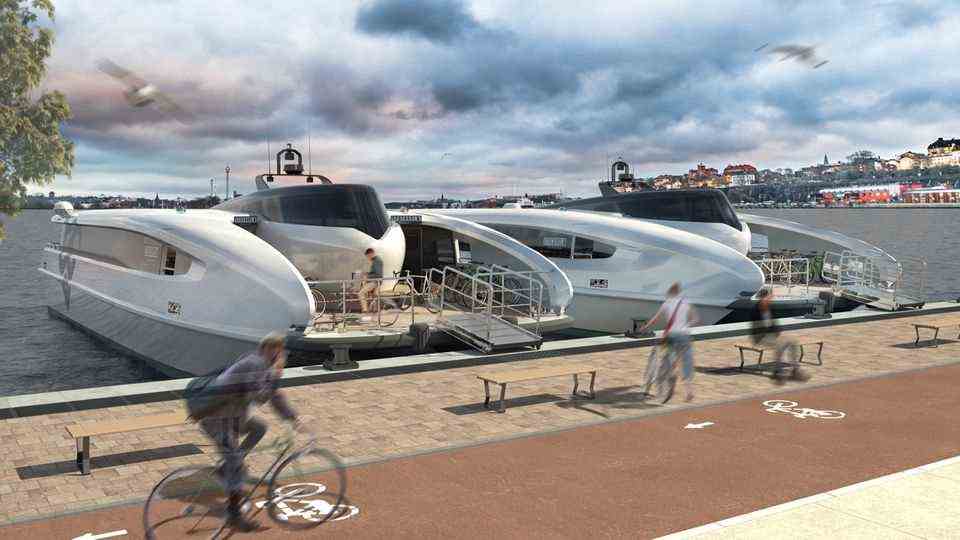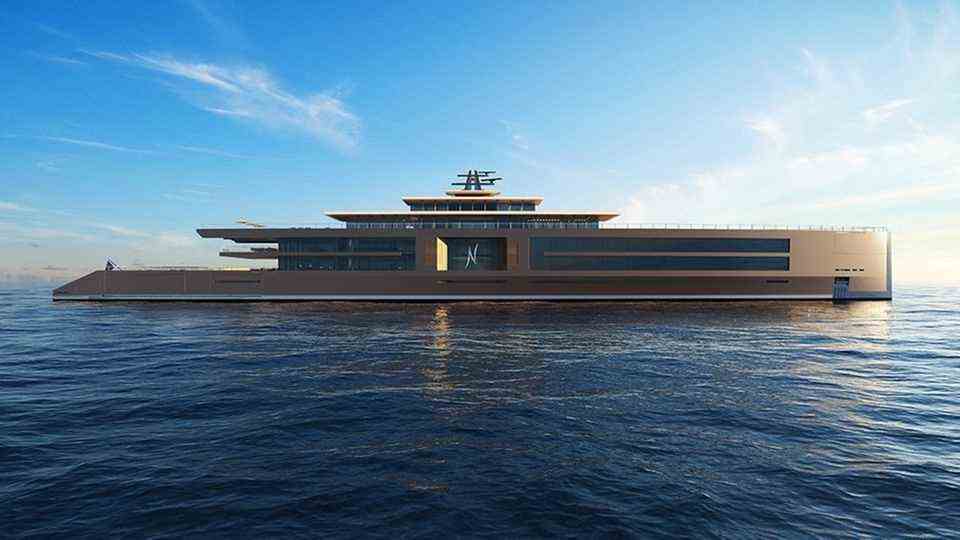catamaran
Beluga24 – Sweden builds CO2-free high-speed ferry
In addition to the high speed, the catamaran must also be easy to maneuver in a small space.
© pr
Local transport in Stockholm will be emission-free with new ferries. The Beluga24 goes almost 60 km / h, lifts itself out of the water with a film between the hulls and does not blow any exhaust gases into the air.
Ships powered by diesel or even heavy oil contribute to climate change. Green City Ferries AB from Sweden has now placed the order for the world’s first emission-free high-speed catamaran: the Beluga24.
Water transport is more important in Sweden and Stockholm than in other countries. So public transport by water must also become more environmentally friendly. No wonder that work is being done in Sweden to make boats and ships free of CO2 emissions. After a battery-operated 30-person inflatable boat, the Swedish companies Green City Ferries AB and Echandia have developed the Beluga24 together with Teknicraft from the Netherlands and the Italian studio Sculli. It is powered by hydrogen.
The catamaran is made of carbon fiber and is equipped with a battery and fuel cell propulsion system from Echandia. This system should be significantly lighter than usual. During the journey, the ship rises out of the water, so the resistance is reduced. The catamaran is constructed differently than conventional two-hull ships. A foil is mounted between the hulls. At full speed, the air is directed onto the foil and it helps to lift the catamaran out of the water.
“Sweden has lagged behind in the electrification of shipping internationally, but now the pace is picking up here too,” said Magnus Eriksson, CEO of Echandia. “We are proud to be part of this project, which not only helps reduce emissions from Stockholm’s local transport on the water, but is also the world’s first zero-emission high-speed catamaran. The ferry will run on an integrated system using batteries and hydrogen be equipped that is significantly more energy efficient compared to solutions with separate systems. “
Compared to conventional ferries, the catamaran should not only be more environmentally friendly, but also significantly faster. The ship should reach over 30 knots – this corresponds to 55 km / h – and consume only 30 kWh per nautical mile, which corresponds to about half the consumption of a conventional catamaran, according to Echandia. It can take 150 passengers and 30 bicycles.
The first catamaran will be delivered in the second half of 2022.
Source: Echandia




